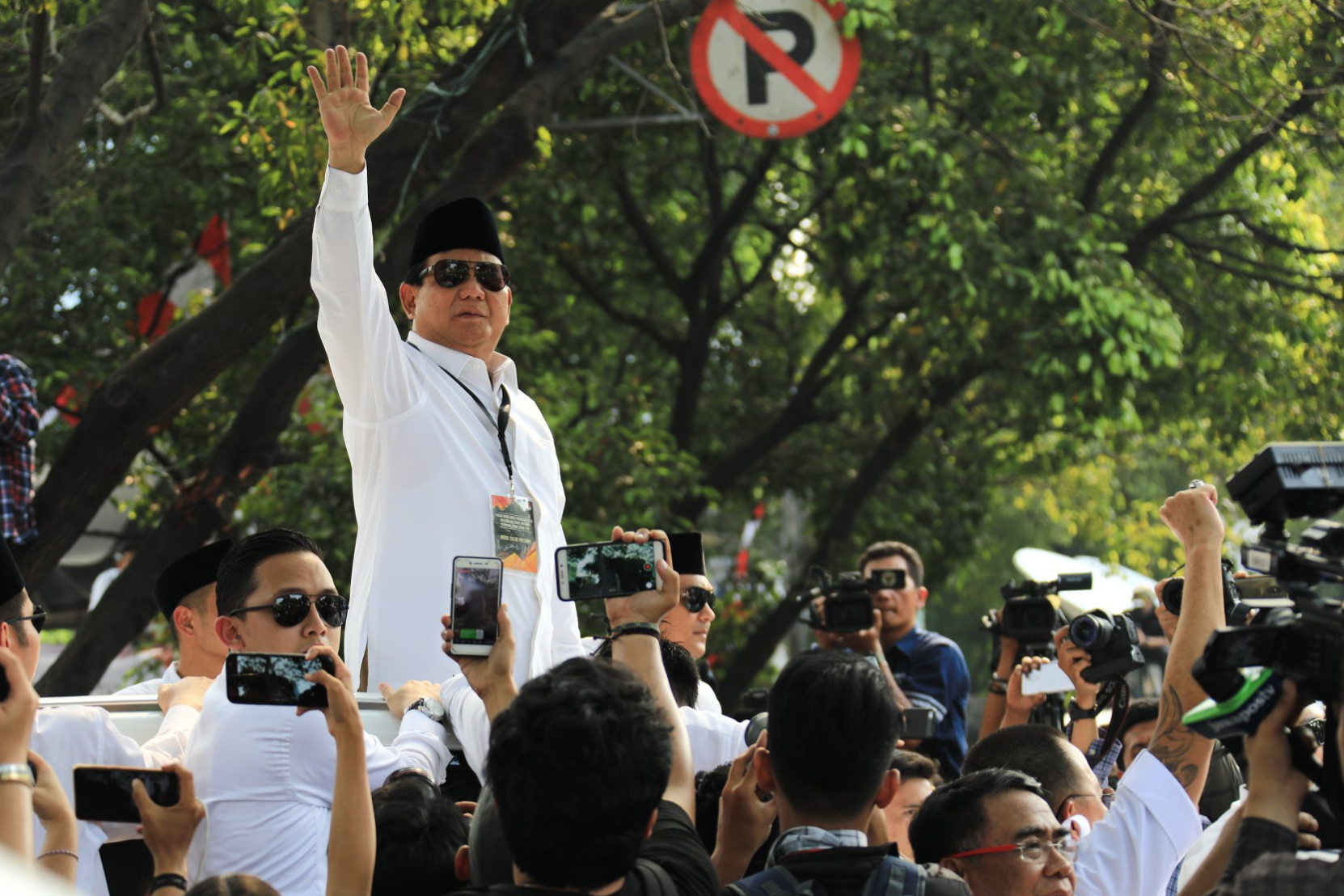Indonesia is likely to review its Chinese-funded infrastructure projects under the Belt & Road Initiative (BRI) if current Indonesian President Joko Widodo's election rival Prabowo Subianto wins the presidential election next year.
This was shared by Prabowo's campaign leader Hashim Djojohadikusumo.
Some projects have to be reviewed
According to South China Morning Post (SCMP), Djojohadikusumo, who is also Prabowo's younger brother, told foreign reporters at a media briefing:
"Indonesia and China have a good relationship, but I think there are certain projects that we want to look at.
I'm sure there are some projects that are very good, and I'm sure some projects are not necessary."
Chinese investments in the country amounted to US$3.36 billion (S$4.64 billion) in 2017, an increase from US$2.66 billion (S$3.67 billion) in 2016, according to another report by The Jakarta Post.
China is the third-largest foreign investor in Indonesia.
Not anti-China
Djojohadikusumo clarified that Prabowo was not being anti-China, despite what "the other side" has been saying:
"... we don't have the intention for nationalism.
We want to have reciprocal treatment by other countries. Financial services, for instance."
He raised the example of how Indonesian banks are only allowed limited operations in Malaysia while "one Malaysian bank" has the right to operate "1,600 branches and sub-branches in Indonesia".
Jakarta-Bandung high-speed railway to be reviewed if Prabowo wins
Djojohadikusumo also said that should Prabowo win, the US$4.5 billion (S$6.2 billion) high-speed railway that is supposed to link Jakarta and Bandung would be reviewed.
He cited the high costs for such a railway that goes from "the suburbs of Jakarta to the suburbs of Bandung", and thought it "doesn't serve a purpose" as there are cheaper alternatives like buses.
Funded by loans given by China Development Bank, the railway has been designated by Widodo as a national strategic project.
However, its progress has been delayed for more than two years after being plagued by land acquisition problems, reported the Jakarta Globe.
Initially scheduled to open next year, the date was later pushed back to 2021.
Other BRI projects hit roadblocks in Indonesia
Progress of other BRI projects in Indonesia have been impeded too.
Conflicts between Chinese and local workers at the Indonesia Morowali Industrial Park (IMIP) in Central Sulawesi and rumours of an influx of Chinese workers into the area have fuelled anti-Chinese sentiments.
In late 2016, groups of students stopped vehicles they suspected of carrying illegal Chinese workers, reported Reuters.
Also, in May this year, activists gathered outside the Chinese Embassy in Jakarta to protest against the building of a Chinese-funded hydroelectric dam in North Sumatra as it threatens the only known habitat of the Tapanuli orangutan -- the world's most endangered great ape.
Chinese investments are also not well received in Indonesia due to domestic ethnic tensions, according to Financial Times.
In addition, a survey commissioned by the ISEAS-Yusof Ishak Institute in 2017 revealed that most Indonesians are skeptical of closer economic engagement with China.
While 62 per cent of respondents thought that Indonesia would not benefit much from deeper economic cooperation with China, only 28 per cent thought that the country has much to gain from closer economic ties with China.
A majority of respondents also thought that Malaysia, Singapore and Japan were more important to the country as compared to China.
Waning enthusiasm for China-backed infrastructure projects
Prabowo's plans to review large, Chinese-funded infrastructure projects can be seen as part of a growing trend of waning enthusiasm for China's BRI vision.
Earlier this month, Sierra Leone cancelled plans to build a US$318 million (S$438 billion) airport funded by Chinese loans, reported the BBC.
The airport was commissioned by the former president Ernest Bai Koroma earlier in March this year.
Malaysia, too, has announced the cancellation of three China-backed pipeline projects in September, saying that Chinese investments in the country appear to be linked to the scandal-ridden 1MDB.
As for the East Coast Rail Link (ECRL) project -- the most strategic project for China's BRI plans in Malaysia -- it is currently being reviewed.
These projects were signed during Najib Razak's tenure.
Pakistan and the Maldives, under new governments, have also become wary of deals made with China by the previous administrations.
[related_story]
Top image via Prabowo Subianto/FB
If you like what you read, follow us on Facebook, Instagram, Twitter and Telegram to get the latest updates.
